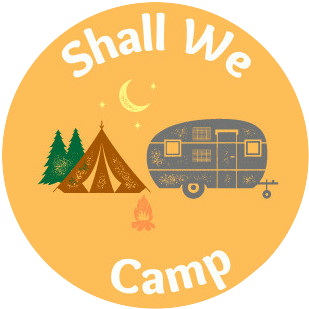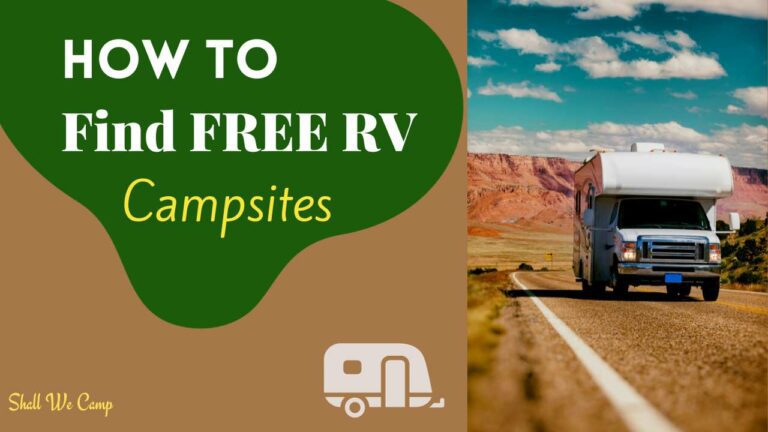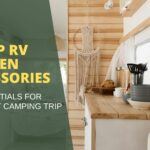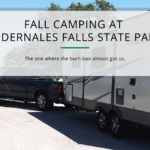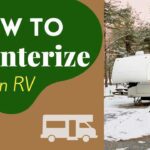The allure of free RV camping lies in the magic of finding picturesque locations without the cost of traditional campgrounds. Whether you're a seasoned traveler or just starting your RV adventure, the prospect of saving money on your journey is undeniably appealing. It's an opportunity to connect with nature, experience the freedom of the road, and create lasting memories, all while discovering the charm of free camping sites across the country.
In this guide, we'll show you the options, share insider tips, and reveal some fantastic resources to make your free RV camping experience truly memorable. Let's embark on this adventure together and unlock the secrets of free RV camping in the USA.
National Forests and BLM Lands: Your Gateway to Natural Beauty
When it comes to free RV camping, national forests and Bureau of Land Management (BLM) lands offer a unique and budget-friendly way to immerse yourself in the wonders of the American wilderness.
The Appeal of Camping in Public Lands 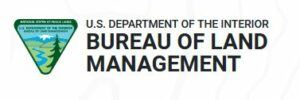
One of the primary attractions of camping in national forests and BLM lands is the sheer diversity of landscapes you can explore. From dense woodlands to arid deserts, these public lands cover a wide range of environments, ensuring that every RV camper can find their perfect spot. The feeling of solitude and connection with nature is unparalleled, making it an ideal choice for those who seek a more remote and unspoiled experience.
Tips for Finding Free Campsites
To discover free camping spots within these areas, consider these tips:
Research and Planning: Start your journey by researching specific national forests or BLM districts that interest you. Most of these lands allow dispersed camping, where you can set up camp in designated areas or wherever it's permitted. Plan your route and identify suitable spots in advance.
Visitor Centers: Many national forests have visitor centers that can provide maps, information, and guidance on free camping opportunities. Don't hesitate to stop by and ask for local insights.
Online Resources: Various websites and apps (we'll explore these in a later section) can help you pinpoint free camping sites within these public lands. They often include user-generated reviews and photos, giving you a sense of what to expect.
Be Self-Sufficient: When camping in national forests and BLM lands, be prepared to be self-sufficient. Pack in everything you'll need and pack out all your trash. There may not be amenities like bathrooms or trash disposal.
Leave No Trace
As responsible campers, it is encouraged to follow the Leave No Trace principles when camping in national forests and BLM lands. These principles promote sustainable and minimal impact outdoor practices.
Remember to:
- Dispose of waste properly and carry out all trash.
- Camp at least 200 feet away from lakes and streams to protect water quality.
- Avoid trampling vegetation and stay on established paths.
- Keep noise levels to a minimum to respect the natural tranquility.
- Leave the environment just as you found it, preserving the beauty for future generations.
National forests and BLM lands offer a gateway to free RV camping adventures filled with natural beauty, tranquility, and the chance to truly unplug from the hustle and bustle of everyday life.
Walmart and Other Retailers: The Convenience of Overnight Stays
When it comes to the convenience of free RV camping, you might be surprised to learn that some retailers, including Walmart, Cracker Barrel, and Bass Pro Shops, welcome RVers for overnight stays. Let's explore the perks and a few unspoken rules for this type of camping.
The Convenience of Parking at Retailers 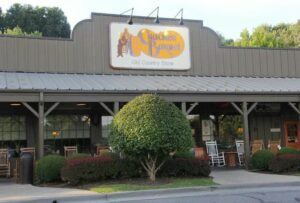
The beauty of parking at these retailers is that it's incredibly convenient for RV travelers. Walmart, in particular, is known for its “overnight RV parking-friendly” policy. Many of their locations allow RVers to park in their lots overnight, providing a safe and well-lit environment. This means you can easily rest and refresh on your journey without the need for a traditional campground.
Retailers Known to Allow Overnight RV Stays
In addition to Walmart, consider these other retailers that often permit overnight RV stays:
Cracker Barrel: Known for its country-style dining, many Cracker Barrel locations offer RV parking spaces. It's a great option for a meal and a good night's sleep.
Bass Pro Shops: This outdoor retail giant occasionally allows RVs to park overnight. It's a fantastic choice if you're into camping and outdoor gear.
Cabela's: Like Bass Pro Shops, Cabela's is another outdoor retailer that sometimes welcomes RVers.
Unspoken Rules and Guidelines
While these retailers are generally accommodating, there are some unspoken rules and guidelines you should follow:
Always Ask for Permission: Before settling in for the night, it's polite to ask the store manager or staff for permission. Not all locations may allow it, so it's best to confirm.
Respect the Area: Be a good neighbor by keeping noise to a minimum and leaving the area clean. This courtesy ensures a positive experience for both you and the retailer.
Limit Your Stay: Overnight parking is typically meant for a single night's rest, not an extended stay. Plan to move on in the morning.
Buy Something: It's courteous to make a small purchase in the store as a token of appreciation for the hospitality.
Parking at retailers offers an excellent alternative for RV travelers seeking a safe and convenient place to spend the night without the cost of a campground.
Related Article
Check out this article about “Preparing Your RV for Winter” and learn how to properly winterize your RV
Websites and Apps for Finding Free RV Camping
In the digital age, finding free RV camping sites has never been easier thanks to a variety of websites and apps designed for this very purpose. In this section, we'll introduce you to some popular resources, review their features, user-friendliness, and reliability, and suggest a few alternatives to consider.
Introducing iOverlander 
iOverlander is a well-known and highly regarded app among the RV community. It's a comprehensive tool that provides a wealth of information about free and low-cost camping options. Here are some of its standout features:
User-Generated Content: iOverlander relies on the contributions of fellow travelers, making it a valuable resource for up-to-date information and firsthand experiences.
Detailed Listings: The app includes detailed listings of camping spots, complete with user reviews, photos, and GPS coordinates for easy navigation.
Filtering Options: You can filter results based on various criteria, including camping type (free, paid, or donation-based), amenities, and more.
Offline Capabilities: iOverlander allows you to download maps and information for offline use, which is especially useful when you're in areas with limited connectivity.
Community and Feedback: The app's active community helps maintain the quality and accuracy of the information provided.
FreeRoam
FreeRoam is an app that focuses specifically on free camping spots. It provides a map-based interface with user reviews and ratings.
Campendium 
Campendium is a website and app that covers a wide range of camping options, including free, paid, and public lands. It offers detailed information and user-generated reviews.
The Dyrt
While not exclusively for free camping, The Dyrt is a comprehensive platform that provides campground and campsite information, including user reviews and photos.
Safety Considerations: Ensuring a Secure Camping Experience
While the allure of free RV camping is undeniable, it's crucial to prioritize safety when choosing your camping spots. Whether you're camping in national forests, BLM lands, retail parking lots, or any other free site, here are some key safety considerations to keep in mind.
Emphasize Safety When Choosing Free Camping Spots
Research and Planning: Before embarking on your RV adventure, do thorough research on the area where you plan to camp. Learn about the local conditions, climate, and potential hazards. Knowing what to expect is the first step in ensuring your safety.
Tell Someone Your Plans: Always let someone know where you're headed and when you expect to return. In case of an emergency, this information can be vital.
Check the Weather: Keep an eye on weather forecasts, especially if you're camping in remote areas. Sudden weather changes can impact your safety.
First Aid Kit and Emergency Supplies: Pack a well-stocked first aid kit and essential emergency supplies, such as a flashlight, extra batteries, a multi-tool, and a communication device, like a satellite phone or emergency beacon.
Being Aware of Surroundings and Local Regulations
Arrival Time: If you're arriving at a camping spot late in the day, it's a good idea to scout the area while there's still daylight. This allows you to assess the surroundings and find a safe and level spot to park your RV.
Local Regulations: Be aware of any regulations or restrictions in the area. National forests and BLM lands may have rules regarding camping locations and campfire use. Respect these regulations to avoid fines and protect the environment.
Wildlife Awareness: When camping in natural areas, be mindful of potential wildlife encounters. Store food properly, keep a safe distance from wildlife, and understand how to react if you come across animals.
Human Interaction: While free camping sites are generally peaceful, it's essential to be cautious of any human interactions. Trust your instincts, lock your RV when you're inside, and avoid confrontations if you feel uncomfortable.
Leave No Trace: Always follow the Leave No Trace principles mentioned earlier to minimize your impact on the environment and preserve the natural beauty of the area.
Final Thoughts
In the world of RV travel, there's something truly magical about discovering the hidden treasures of free camping sites. As we wrap up this guide, let's take a moment to sum up the benefits of free RV camping.
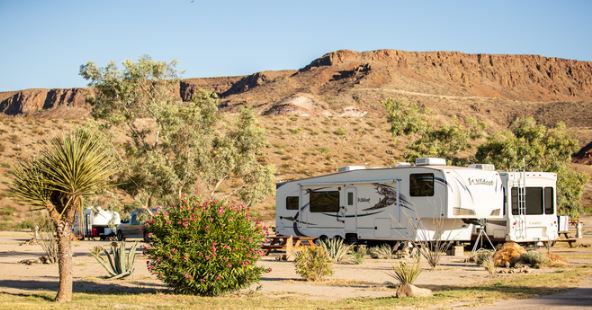
The Benefits of Free RV Camping
Free RV camping is all about embracing the beauty of the open road while keeping your budget intact. Here's why it's a remarkable choice:
Cost-Effective Adventure: By opting for free camping sites, you can allocate your budget to experiences rather than accommodation, allowing you to explore more places and create lasting memories.
Natural Wonders: Whether you choose national forests, BLM lands, retail parking lots, or any other free spot, you're connecting with the great outdoors and immersing yourself in the beauty of Mother Nature.
Flexibility: Free RV camping offers the freedom to chart your course and change your plans on a whim. You're not tied to reservations, and the possibilities are endless.
Community and Camaraderie: You'll likely encounter like-minded travelers along the way, sharing stories and tips, creating a sense of camaraderie that's unique to RV life.
So why not take the plunge and explore the vast array of free RV camping options across the United States. Use the resources, tips, and guidelines provided in this guide to embark on your own adventure. Unplug from the daily grind, immerse yourself in the serene landscapes, and savor the freedom of the road.
From national forests to retail parking lots and everything in between, free RV camping offers a unique and enriching way to travel.
Always remember to respect the environment, prioritize safety, and make memories that will last a lifetime. If you do the research ahead of time, you will find that free RV camping is not only accessible, but abundant and easy to find.
